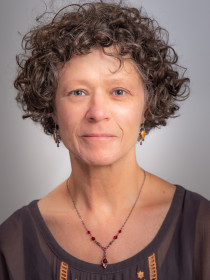
Janet Page-Reeves
Connect with Janet
About Janet
Page-Reeves is a cultural anthropologist with training in political economy and gender theory. She has extensive experience utilizing ethnographic methods to conduct collaborative research and engage in applied work in Latino and Native communities in New Mexico and Bolivia with a focus on research with women. Her training as an anthropologist provides her with the skills for designing and conducting research using an ethnographically inspired approach. Page-Reeves has been a Fulbright Hayes Research Fellow, a Foreign Language and Area Studies (FLAS) Fellow, an Inter-American Foundation Fellow, and a Visiting Fellow at Cornell University. She is a member of the Advisory Board for KNME Public Radio’s Public Health and Poverty Initiative, and she participates in community activities, including the International District Healthy Communities Coalition and the New Mexico Interfaith Hunger Coalition, and she works closely with community residents in the International District, Santa Barbara/Martineztown and the South Valley. In 2014, she was appointed as a member of the New Mexico Advisory Committee to the U.S. Commission on Civil Rights.
Contributions
In the News
Publications
Discusses findings from 40 ethnographically inspired interviews with 21 Native science professionals conducted in two iterative phases. We approached our interpretation of the data as an opportunity for deriving insights into the nature and meanings of participant narratives and experiences, why they present their stories in a particular way, and what this can tell us about the research questions we are exploring.
Demonstrates that it is feasible for a clinic to implement a structured way to identify and address nonmedical social needs experienced by patients.
Highlights the ways that culture and community influence concepts of wellness, the experience of well-being, and health outcomes.
The purpose of this project was to develop a multidimensional understanding of synergistic connections between food-related and emotional health in the lives of Latina immigrants using a community-engaged approach with women who participate in a social isolation support group
Explores both the structural constraints that limit what and how much people eat, and the myriad ways that women creatively and strategically re-structure their own fields of action in relation to food, demonstrating that the nature of food insecurity is multi-dimensional.
Examines conceptualizations of the relationship between food insecurity and place. Demonstrates the key nature of the health-place nexus by exploring how food insecurity articulates with place in unexpected ways that go beyond discussions of food, food environments, food access, food practices or food systems that have become common in the literature.